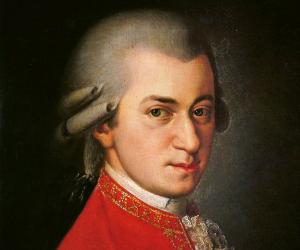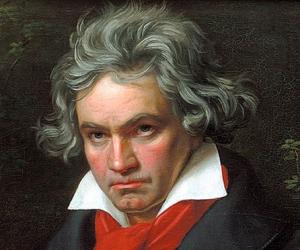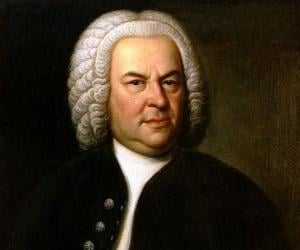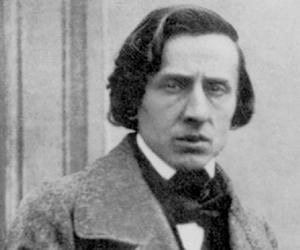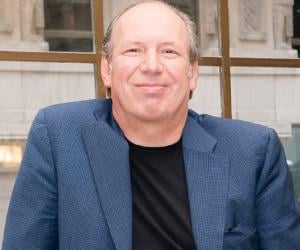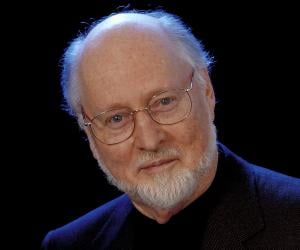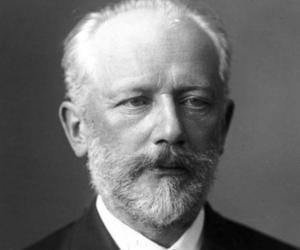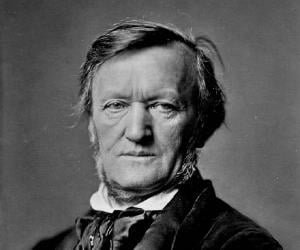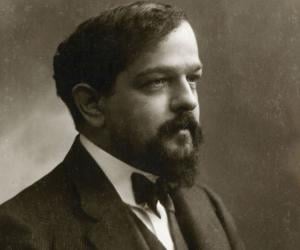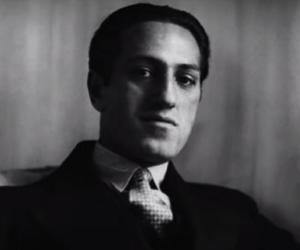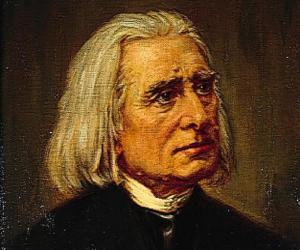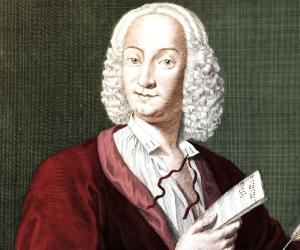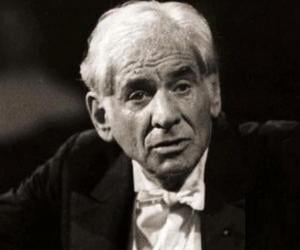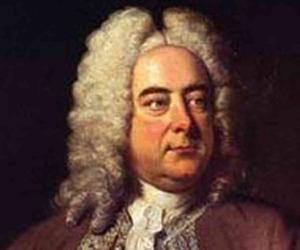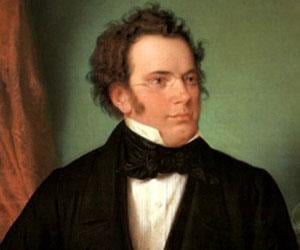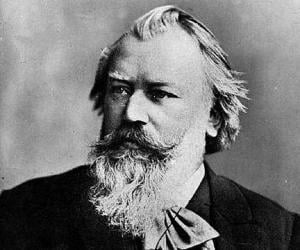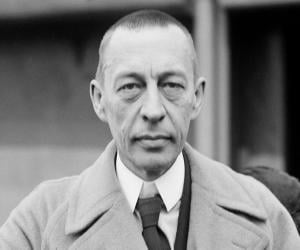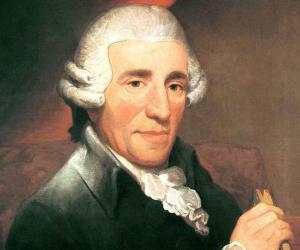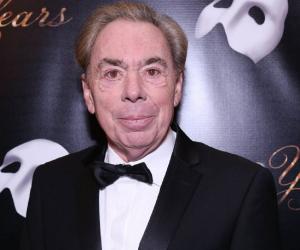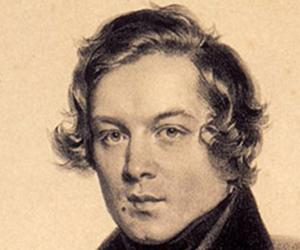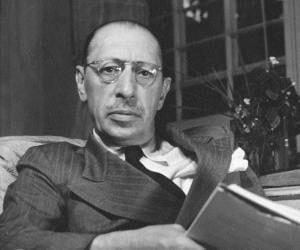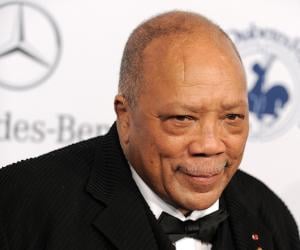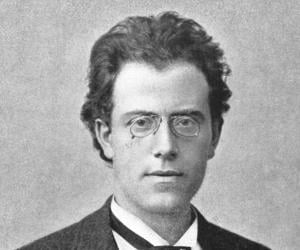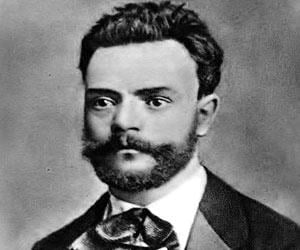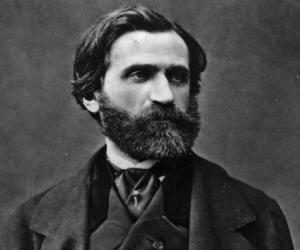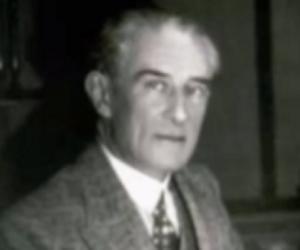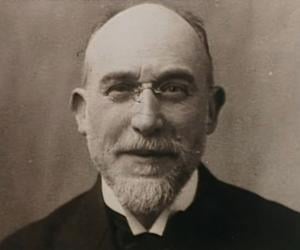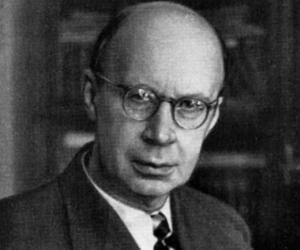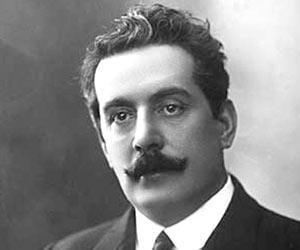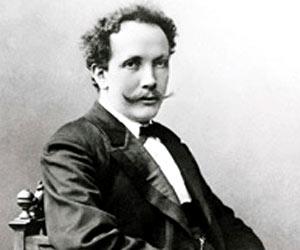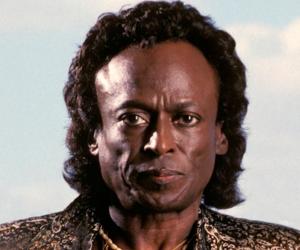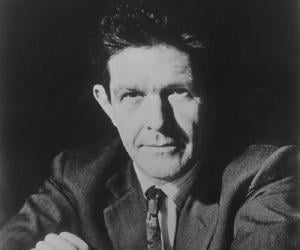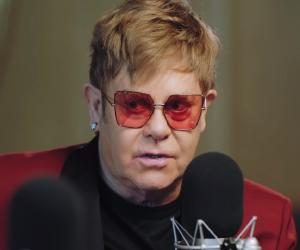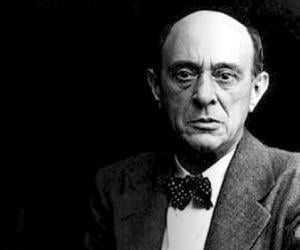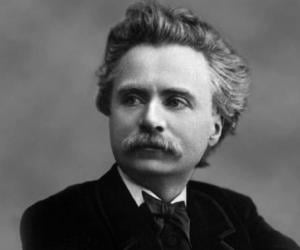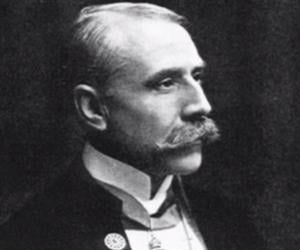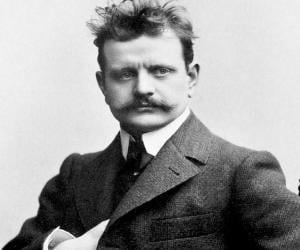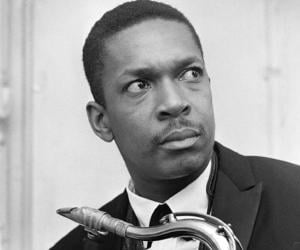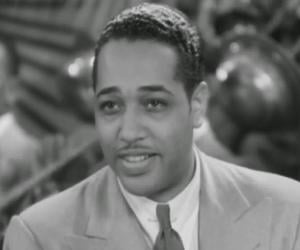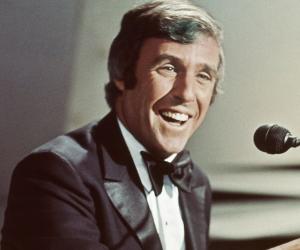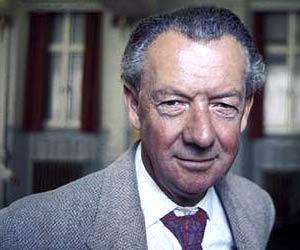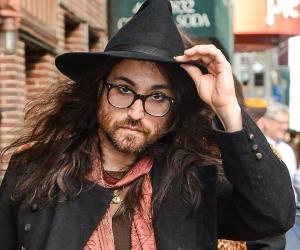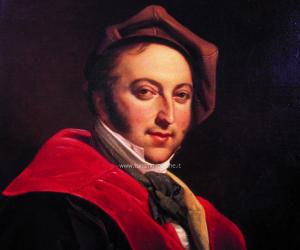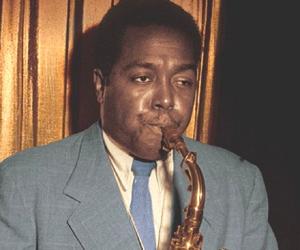A child prodigy, Wolfgang Amadeus Mozart is regarded as one of the greatest classical composers ever. A prolific composer, he had a profound influence on Western music. Many of his works are considered pinnacles of choral, symphonic, operatic, chamber, and concertante music. Before his death, at the age of 35, he had composed over 600 works.
German composer and pianist, Ludwig van Beethoven, remains one of the most admired composers in the history of Western music even two centuries after his death. Born into a musical family, he was initially tutored by his father. He found success early as a pianist and went on to become an admired composer despite suffering from hearing-impairment.
Johann Sebastian Bach was an 18-th century German composer of the Baroque period. He redefined both church and secular music. He served as the court musician of Duke Johann Ernst and King Augustus III. He created more than 300 cantatas and vocal music such as Mass in B minor.
Romantic Era virtuoso pianist and composer Frédéric Chopin, nicknamed The Poet of the Piano, is remembered as the inventor of the instrumental ballade. The legendary composer mostly created solo piano masterpieces but also experimented with piano concertos and chamber pieces. He was influenced by Bach, Mozart, and Polish folk music.
German film score composer and record producer Hans Zimmer has composed music for over 150 films so far. He developed a love for music as a child and started playing professionally when he was in his teens. He eventually ventured into films. He is the recipient of four Grammy Awards and three Classical BRIT Awards.
John Williams is an American composer, pianist, trombonist, and conductor. Widely considered the greatest film composer ever, John Williams has played a significant role in the American film industry by composing music for films, such as the Jurassic Park films, Star Wars saga, the Indiana Jones films, and Schindler's List. He has also influenced several other composers like Marcus Paus.
Pyotr Ilyich Tchaikovsky was the first Russian composer to place Russian music on the international stage. Often described as a musician who transcended the stereotypes of classical Russian music, Tchaikovsky is credited with making the Western world take note of Russian music. Although he was criticized by the critics, his popularity among the public never faded.
Regarded as one of the world’s greatest film composers, Ennio Morricone was an Italian composer, orchestrator and conductor who scored music for over 500 films in his career spanning seven decades. Morricone covered a wide range of music styles and is best known for scores in the Dollar Trilogy and Once Upon a Time in the West.
Claude Debussy was a French composer whose career spanned over 30 years. Regarded as one of the most influential composers of his generation, Claude Debussy's works have influenced several other composers, such as Bill Evans, George Benjamin, Olivier Messiaen, and Béla Bartók. Claude Debussy is also regarded as the first Impressionist composer, though he rejected the term.
George Gershwin was an American pianist, composer, and painter. His work Porgy and Bess is widely regarded as an American cultural classic and one of the 20th century's most important American operas. Many of his compositions have been used in films and television series. His life and work inspired the 1945 biographical movie, Rhapsody in Blue.
Franz Liszt was a Hungarian composer, conductor, arranger, music teacher, and virtuoso pianist of the Romantic era. Considered one of the greatest pianists ever, Liszt's works influenced his contemporaries and successors alike. Perhaps his greatest legacy is his work as a teacher, although his rich body of work might suggest otherwise; he taught people like Karl Klindworth among other pianists.
Italian Baroque composer, virtuoso violinist, and teacher, Antonio Lucio Vivaldi, is regarded as one of the greatest Baroque composers. He was extremely popular during his lifetime and composed many instrumental concertos and operas. He was also a Roman Catholic priest and worked at a home for abandoned children. Even though he died in 1741, his music continues to be popular.
Leonard Bernstein was an American composer, music educator, conductor, pianist, author, and humanitarian. One of the most important cultural personalities of 20th century America, Bernstein influenced many generations of musicians. He is also credited with mentoring famous conductors like John Mauceri, Herbert Blomstedt, Alexander Frey, Marin Alsop, and Edo de Waart among many others.
George Frideric Handel was a Baroque composer renowned for his oratorios, operas, anthems, and organ concertos. A great composer, Handel's works had a strong influence on popular Classical-era composers like Beethoven and Mozart. George Frideric Handel's life and work have also inspired several films, such as the 1942 British biographical film The Great Mr. Handel.
Austrian composer Franz Peter Schubert was one of the most prominent figures of the Viennese Classical and Romantic periods. He initially performed at the Gesellschaft der Musikfreunde. His compositions include over 600 vocal works and several symphonies, operas, and piano sonatas. One of his most-talked-about works is the Unfinished Symphony.
Sergei Rachmaninoff was a Russian composer, conductor, and virtuoso pianist of the late Romantic period. Credited with exploring the expressive possibilities of the piano, Rachmaninoff's music continues to be featured in films. His four-year struggle with depression, which was followed by the critical failure of his Symphony No. 1, was depicted in the 2015 musical Preludes.
Joseph Haydn was an Austrian composer who played a key role in the progression of chamber music during the Classical period. He is often referred to as the Father of the String Quartet and Father of the Symphony for his contributions to musical form. Joseph Haydn is also credited with mentoring and tutoring Mozart and Beethoven, respectively.
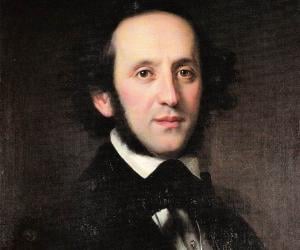
Felix Mendelssohn was a German composer of the early Romantic period. He was also a skilled organist, pianist, and conductor. He composed symphonies, concertos, chamber music, and organ music. His collection of lyrical piano songs Songs Without Words is among his best-known works. He was the founder of the public university The Leipzig Conservatory. He died aged just 38.
Four-time Grammy-winning Russian composer and pianist Igor Stravinsky is regarded as one of the greatest composers of the 20th century. He is remembered for his ballets The Firebird, Petrushka, and The Rite of Spring. He broke the traditional flow of music and incorporated his own style.
Regarded as one of the most popular and influential jazz musicians of the previous century, Quincy Jones is known for his work with other legendary artists like Michael Jackson and Frank Sinatra. As the first African-American to find success at the Academy Awards ceremony, Quincy has influenced a host of black musicians and songwriters.
Austro-Bohemian Romantic composer and conductor Gustav Mahler symbolized the transition of 19th-century Austro-German music to early-20th-century modernism. His music was banned during the Nazi era but was rediscovered later. Famous for his Eighth Symphony, he had also been the director of the Hofoper (Vienna Court Opera).
Antonín Dvořák was a Czech composer who achieved worldwide recognition for his works. His life and career inspired the 1980 historical biographical film Concert at the End of Summer, in which Dvořák was played by actor Josef Vinklář. Canadian children's author Ian Krykorka has based many of his works on some of Antonín Dvořák's operas.
Legendary Italian opera composer Giuseppe Verdi is best remembered for his masterpieces such as Requiem, Rigoletto, Falstaff, and Otello. He was also briefly associated with the Risorgimento movement meant to unify Italy and thus composed many choruses reflecting the spirit. He was inspired by composers such as Bellini and Donizetti.
Erik Satie was a French pianist and composer. An influential artist during his time, Satie's works served as a predecessor to later artistic movements like repetitive music, minimalism, and the Theatre of the Absurd. Apart from being a musician, Erik Satie was also a prolific writer, who contributed to publications, such as Vanity Fair and 391.
Sergei Prokofiev was a Russian Soviet pianist, composer, and conductor. Renowned for creating masterpieces across various genres, Prokofiev is widely considered one of the 20th century's major composers. Many other composers like Arthur Honegger have called Prokofiev the greatest contemporary musician of all time. An open pianists' competition, which is held every year in Ukraine, is named after Sergei Prokofiev.
Born into a musical dynasty, composer Giacomo Puccini lost his father at age 5. Some of his best opera pieces include Madama Butterfly and La Bohème. The suicide of his maid, who was wrongly accused by his wife of being in an affair with him, affected his later career adversely.
Richard Georg Strauss was a German conductor, composer, violinist, and pianist. Renowned for his pioneering subtleties of orchestration, Strauss is generally regarded as a modernist, although he was initially considered a conservative, backwards-looking composer. Over the years, his music has influenced other prominent composers like Béla Viktor János Bartók, Karol Maciej Szymanowski, Edward Elgar, and Benjamin Britten.
Jean Sibelius was a Finnish violinist and composer. Widely regarded as Finland's greatest composer, Sibelius' music is credited with having kindled nationalism in Finland during the country's struggle for independence from Russia. His work has inspired other important composers like Douglas Lilburn. The International Jean Sibelius Violin Competition, which is held every five years, is named after him.
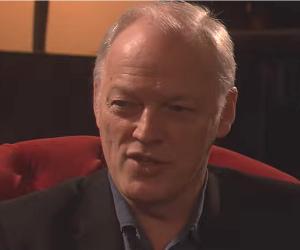
Pink Floyd guitarist/singer David Gilmour helped the band become one of the best-selling acts ever. One of Rolling Stone magazine’s greatest guitarists of all time, he has also been an advocate of animal rights and other causes. He once auctioned off 120 guitars, including his iconic Black Strat, for charity.
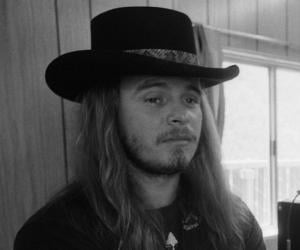

David Lee Roth is an American rock singer, songwriter, musician, and former radio personality. Renowned for his energetic stage persona, Roth was a long-time member of the popular hard rock band Van Halen where he served as the lead singer. In 2007, he was inducted into the Rock and Roll Hall of Fame.
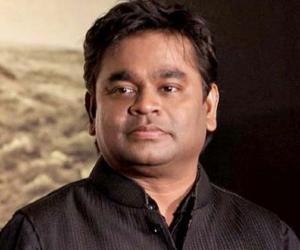
A. R. Rahman is an Indian film composer, singer, songwriter, and record producer. Rahman is one of the most decorated and celebrated musicians in Indian history. He was won several prestigious awards including two Grammy Awards, two Academy Awards, a Golden Globe Award, and a BAFTA Award. In 2009, he was named among the 100 most influential people in Time.
Path-breaking British composer, pianist, and conductor Benjamin Britten was known for his fine operas such as Peter Grimes and the War Requiem. He also created countless orchestral works and is known for his long professional partnership with tenor Peter Pears, a collaboration that led to the formation of the Britten-Pears Foundation.
The son of John Lennon, Sean Lennon followed in his father's footsteps to become a musician, songwriter, and producer. A practitioner of Transcendental Meditation, Lennon played in Live on Earth to help raise funds for the David Lynch Foundation, a global charitable foundation which funds the teaching of Transcendental Meditation in schools.
Gioachino Rossini was an Italian composer best remembered for composing 39 operas before retiring at the peak of his popularity when he was still in his 30s. Such is his influence on modern-day virtuosi that many of them have created piano fantasies or transcriptions based on Gioachino Rossini's melodies.
Charlie Parker was an American composer and jazz saxophonist. A highly influential soloist, Parker played a significant role in the development of a form of jazz called bebop. He is also credited with introducing harmonic ideas into jazz, such as chord substitutions and rapid passing chords. His contribution to jazz and bebop made him an icon of the hipster subculture.
